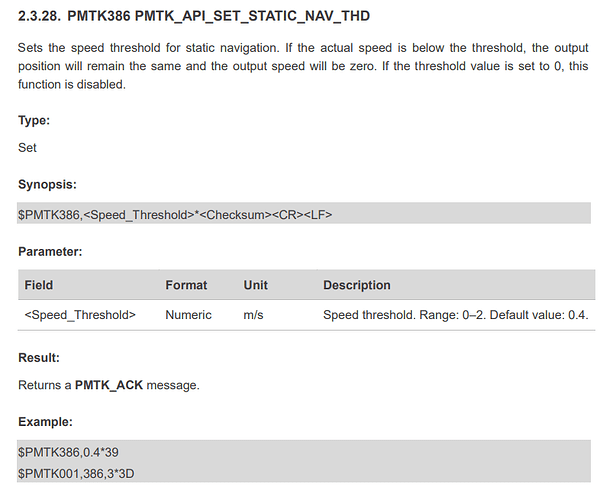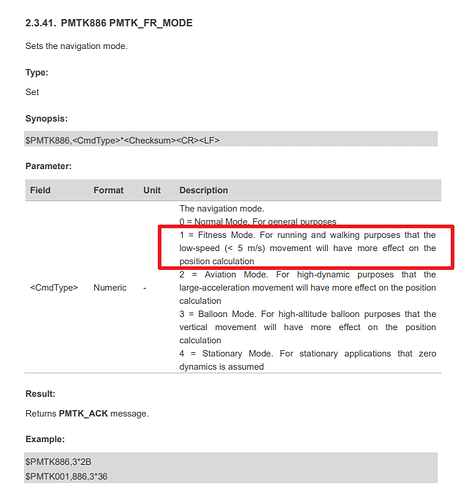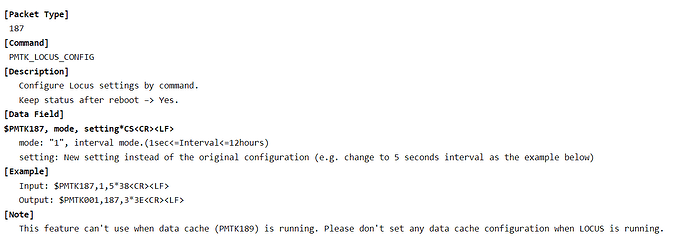Hi everyone,
I am interested in building a personal device to track walks or bike rides, and for that i want to maximise battery life. The ideal target for the project is that the device is the smallest possbile providing multiple days of battery life, in the range of 3 to 4 days between charges, including hypothetical switch off periods. Think of it as a tracker for a multiple day excursion with camping without charging possibilities (or charges limited to important devices).
The LOCUS feature seems to suit my needs, as it would allow me to switch off the mcu, and leave only the gps module on (for reference, i would like to use the L96 module).
In the datasheet of the module it states:
The module logs the basic information (UTC time, latitude, longitude and height) every 15s to internal
flash memory. (CHAPTER 3.15 of Rev. L96_Hardware_Design_V1.3)
My question is:
Is the 15 seconds referring to the time interval between GPS/GNSS acquisitions, or is it refferring to the interval between flash writes?
I suspect the answer being the first one, but my project would need a much lower time interval between samples (for at least my “average human” biking/running speed), in the order of a sample every 1 to 4 seconds.
Am i wrong about the answer? Am i missing anything?
Thanks kindly in advance for any help!


